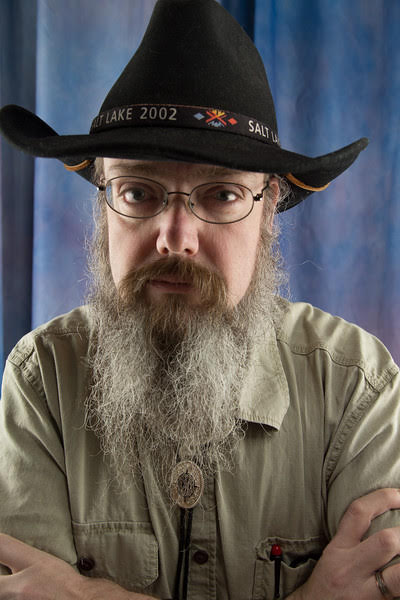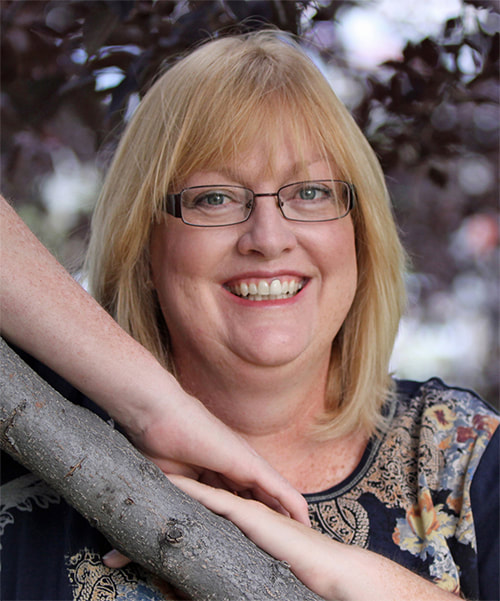*Horror, fantasy, science fiction, and some good old-fashioned western. You know, the kind of thing at which a lot of people turn their nose up. I’ve never had much use for reading a book about someone getting up and going to work, then going home for dinner. Unless, of course, that person encounters an alien on the way to work, arrives home to find a slaughtered family member with an orc standing over the body. I have enough angst and worry in my own life; I don’t really have time to have it in my fiction. But, if that’s your thing? More power to you. I say live and let live. You write what you enjoy, I’ll write what I enjoy and we’ll (hopefully) both be happy.
When did you first realize you wanted to be a writer?
*I think it was sometime in the fourth grade. Mrs. Pardoe made a positive comment on something I had written. I’ve been seeking more of that praise ever since, as well as the fulfillment I felt at entertaining someone with the written word.
What do you consider the most influential book you've ever read?
*Man…that’s a tough one to answer. A lot of genre writers point to On Writing by Stephen King. I’m not going to, although it’s a good work. I think that The Phantom Tollbooth would be on that list, largely because of the brilliant wordplay and great message. Also on that list is Killer Angels (one of only a few books that has ever brought me to tears) for teaching me that well-written books could truly cause tears. The Shining (one of only a few books that has genuinely scared me) for, well, teaching me that the written word had the power to terrify. I’m also a Lord of the Rings fanatic; the prose, poetry, and world-building (including language creation) is truly amazing. I could probably go on for pages about my influences, actually.
What other authors are you friends with, and how have they helped you become a better writer?
Sheesh…where do I start? Who do I offend by leaving off the list (or, in some cases, putting ON the list)? I know I’ll forget someone (and if I do, it’s unintentional), but I’ll start the list with you, Cody.
Cody Langille: Expand my horizons.
D.J. Butler: Persevere; stand up for myself.
Tracy Hickman: It’s OK to reinvent myself; the need to listen to the voices once in a while.
Bob Defendi: Humor is perfectly acceptable in large doses as well as small ones.
Brad Torgerson: Shoot for the stars, you may just make it there.
Paul Genesse: Dragons are real.
Alan Bahr: Tiny things can be really powerful.
Michael Collings: Poetry is cool. Really cool.
Michaelbrent Collings: Make sure that you breathe in every time you breathe out.
Nathan Shumate: B movies aren’t bad.
Johnny Worthen: Tie dye is cool and badgers are awesome.
David Farland: Magic systems aren’t easy to create.
Terra Luft: Someone out there will always need your expertise, no matter how random or obscure.
Scott Forman: Don’t feel the need to go along even when everyone around you is…just be yourself.
John Olsen: Just because you stick a gear on it, it doesn’t mean it’s steampunk.
Lehua Parker: Never judge a book by its cover.
Al Carlisle: Real life makes awesome book fodder.
Charlie Harmon: What others see as an obstacle may not be.
Michael Darling: Good guys don’t always finish last.
David West: Someone else thinks smoking jackets look cool.
Larry Correia: Pick a card. Any card.
What’s the best way you've found to market your books?
*Largely I’ve relied on various forms of social media. I also have some blogging friends that have passed along the message. It’s worked well enough, but there’s certainly room for improvement. It’s not the “best” way, but right now the “only” way, based on time and life factors.
What kind of research do you do, and how long do you spend researching before beginning a book?
*Name it. <laughs> Hours spent at the State Library. Ancient art objects found in online museum collections and galleries. Maps of all shapes, sizes, and types. Those ubiquitous internet searches that make most genre authors a little nervous about potential NSA monitoring. Most recently was a purchase of a vintage book filled with blueprints and sketches of Victorian houses. Inspiration and research can be found everywhere, so I have a hard time putting a time frame on my research. You could say I’m always researching, I just don’t know for what.
Any last thoughts for our readers?
*To date, much of what I’ve published has been with small presses (at least one of which is defunct). It can make for some easier publication, but more difficult distribution and marketing. But if you can get published, do it. Make sure you research the presses first, but be wiling to take a chance if the terms are in your favor. I’ve passed up some opportunities that I now regret. As with everything else, once an opportunity passes, it can be difficult to get it back.


 RSS Feed
RSS Feed